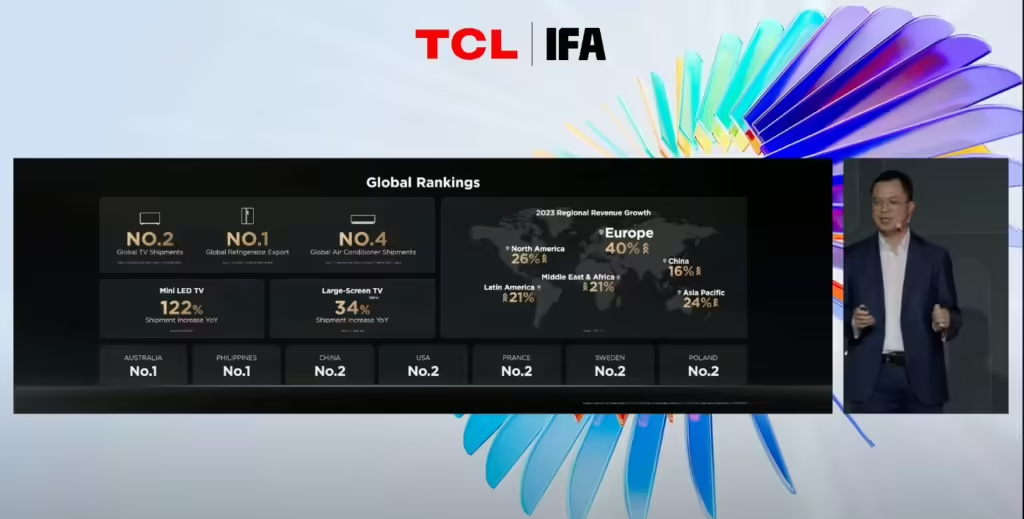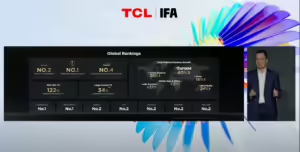In a series of articles in ET News out of Korea, a controversy has emerged surrounding Chinese TV manufacturer TCL and its QD TVs. Korea’s QD materials maker Hansol Chemical accused TCL of falsely advertising QD technology in their TVs. Tests conducted by global certification agencies SGS and Intertek revealed that three TCL models—C755, C655, and C655 Pro—did not contain the essential QD materials, indium or cadmium, which are critical for the functioning of QD technology. The tests were carried out for Hansol as part of its market research.

TCL responded by asserting that it did indeed use QD films in their TVs, claiming that its QD film contains cadmium at a concentration of 4 mg/kg, according to its own SGS tests. TCL suggested that differences in testing methods might account for the discrepancy, pointing out that Hansol’s tests examined the finished TV product rather than the QD film itself. TCL implied that minor amounts of cadmium or potential film damage during production might explain the absence of QD materials in the final product.
This is all happening around IFA 2024 in Berlin, where TCL has a significant presence. Also at IFA 2024 is Samsung Electronics and it decides to weigh in on the debate. Yong Seok-woo, the president of Samsung Electronics’ Visual Display (VD) business division tells ET News that verifying the presence of QD materials in a TV is relatively straightforward and suggests that an objective test by a certified institution could quickly clarify the situation. And, it seems that this now translates into a controversy with calls for clearer industry standards and testing protocols to protect consumers.
| Testing Lab | TCL Model | Measured | Indium (In) | Cadmium (Cd) | Indium Minimum Detection Standard (mg/kg) | Cadmium Minimum Detection Standard (mg/kg) |
| Intertek | C755 | Sheet | Undetected | Undetected | 2 mg/kg | 0.5 mg/kg |
| Intertek | C655 | Diffusion Plate | Undetected | Undetected | 2 mg/kg | 0.5 mg/kg |
| SGS | C655 PRO | Sheet | Undetected | Undetected | 5 mg/kg | 0.5 mg/kg |
| SGS | C655 PRO | Diffusion Plate | Undetected | Undetected | 5 mg/kg | 0.5 mg/kg |
| SGS | C655 PRO | Sheet | Undetected | Undetected | 5 mg/kg | 0.5 mg/kg |
The perspective is from Korean competitors of TCL. SGS could be considered to be independent here, but it is also not testing against any standards or regulations, but fulfilling a market contract for Hansol, or so it appears. However, TCL has its own rebuttal tests from SGS that it provided and shown below/

Whatever the actual underlying issues may be with detecting the presence of QD in TCL TVs, it does give its Korean competitors a theoretical wedge to use against the company, and if there is in underlying issues with the use of QD in TCL TVs which claim to be QD then that is going to be an embarrassment for TCL. Will consumers care if the TVs are performing as they expect? Hard to tell. It’s a pretty esoteric issue but it could certainly get ugly for everyone involved on the industry side of things, and this is the kind of controversy that is greater fodder for tech journals that thrive on controversy, rumor, and conspiracy theories. This could be the beginning of something big and it does not look good for TCL right now.

